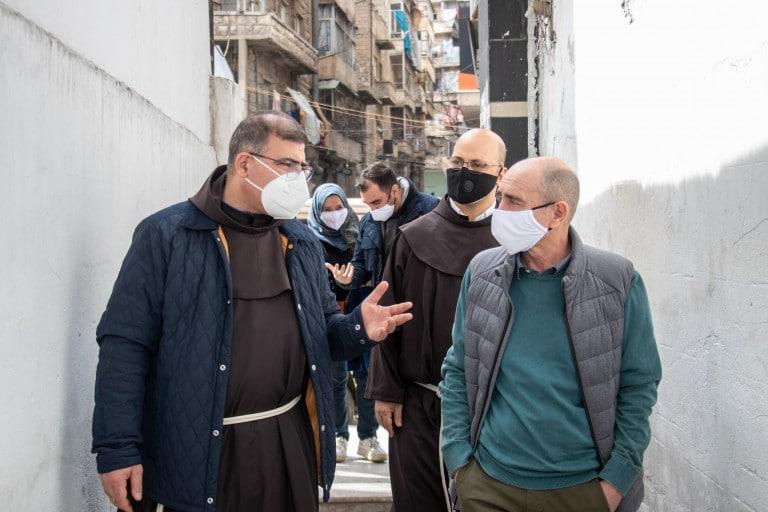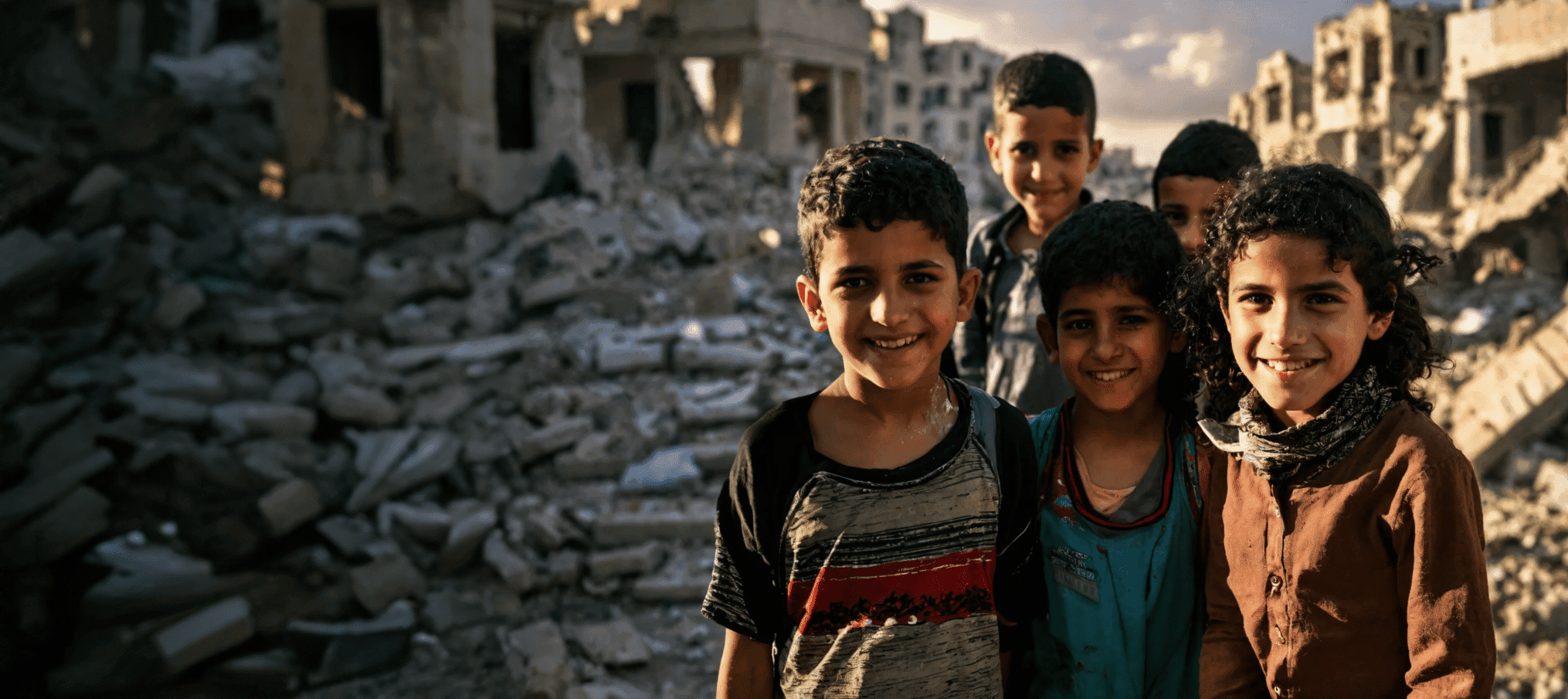Our operators Giacomo and Libero are on a mission in Syria for the first time after the beginning of the pandemic. The Country was wounded by years of war and is now in the midst of an economic and sanitary crisis. Basic goods and essential services are missing. For our operators is very difficult to keep in touch with us and let us know how things are going as it is difficult to reach their families and assure them they are safe. Recharging its phone during the few hours when it is possible, Giacomo was able to give us a recap of his trip in Syria. Here his report:
“Syria is truly a mess, I don’t really know how to explain it more plainly. There is hope, they want to start over fresh but they have no means whatsoever to do so. I never heard so many people expressing their will to leave this country: young people and most families, even Ayad's, want to emigrate as they can’t endure living in this conditions. Latest reports show that 90% of families are living below the poverty line. The inflection of the Syrian pound is so strong that the exchange rate, fixed at 900 at the beginning of the year, is currently up to 4500: 1 dollar equals to 4500 Syrian pounds. Prices are incredibly high whilst incomes never changed: a low to average salary is more or less 50.000,00 SYP per month, average salary goes up to 100/120.000,00 SYP. The expenses for a family of 3, 4 people are at least 650/800.000,00 SYP. Nobody, not even those with a double salary, can afford to regularly maintain a family. Petrol is super expensive as it cannot be imported due to the embargo on Syrian and Iranian oil. The lines of cars and taxis trying to get some petrol are incredibly long. You’ll get a card and can get maximum a full tank of oil per month but only in certain days and based on your car plate register number. Also, to get some petrol, you need to spend an entire day in a 5 kilometers long line.
The waiting time to get a State contribution to buy some gas for the heating system are also incredibly long. A family told me their appointment will be in July… clearly not a month when heating is needed. The State activates a central heating system for two hours maximum per week. A lady told us she had to leave her three kids, aged 5, 6 and 12 alone at home to go to work and two of them had a serious fever. During her shift she couldn’t endure and ended up sobbing. Her boss asked her what was going on and, after she explained him the situation, they both run to her house to ensure the kids were fine. The lady wrapped covers all around the windows to mitigate cold getting trough and protect her sons. The boys were cold but luckily alive. It is not the first time I’ve heard similar stories. Here in Syria we get electricity two, three hours per day. In Damascus electricity is available from 9 to 10 am, 12-1 pm and at 1 am. Everything else needing electricity depends on power units fueled by oil, which is incredibly expensive. Most of the families here live without heating.
The consequences of the crisis are dramatic: many kids aged 9 up are working to help their families make ends meet and their parents forbid them to go back to school. It’s a very popular phenomenon is East Aleppo and in Latakia as children renouncing to studies can help their households with a critical economic contribution. One of the many new projects we would like to propose is to take away kids from the streets, give them the opportunity to take free courses to complete their lost school years and get them back on board with studies. The families have started to renounce to at least one meal per day as they are not able to buy food. It is clear that in this situation humanitarian help is needed. It’s absurd: every family asks for humanitarian help as they don’t have enough money to eat. With a monthly pay you can buy 4,5 two liters cooking oil tanks. A complete meal costs 50.000,00 SYP. Bread is also missing. You can buy as many bread pieces as your family members, not more. Even for bread you can see lines of people forming. Some families told me that, when they say the Lord’s Prayer, the phrase “Give us this day our daily bread” has become so much more poignant: it’s an invocation to someone allowing them to live. When they are praying they know they need bread, as there is none, but they are also in need of the Lord’s company.
Sure, in the first world countries now in lockdown we have serious issues. Parents are worried about schools closing but here, when schools actually closed from March to June, there was nothing in exchange, no online courses as there is no electricity nor Wi-Fi. Kids therefore were messing around really doing nothing all day long. It’s not my intention to go for pietism but, nobody here has the chance of covering all the expenses and therefore they renounce to a meal, they make kids work, they live without heating, they go by foot or take the always full public transportations as they cannot afford to get fuel: it really is a mess. Getting here from Italy means to scale down on expectations. You will go from complaining about being in a lockdown to live truly dramatic situations. But the thing that surprised me the most was that all these poor people we meet because they are taking part to our projects and they are receiving our help are asking us with real concern how thing are going back in Italy. With a bit of embarrassment we try to explain our problems to them and they react by completely understand us. They can totally relate to ours pains. They won’t laugh at our problems, even if related to theirs they are inexistent. This made me reflect on the fact that the more you live in painful and uncomfortable situations, the more you get empathic and you are able to understand what people are going through. There is a major unity feeling, especially with Christian families, that allows them to put themselves in someone’s else shoes with no judgment at all. Syrians are able to get emotional for the struggles of people that are living in a way better place and time compared to theirs.”


















